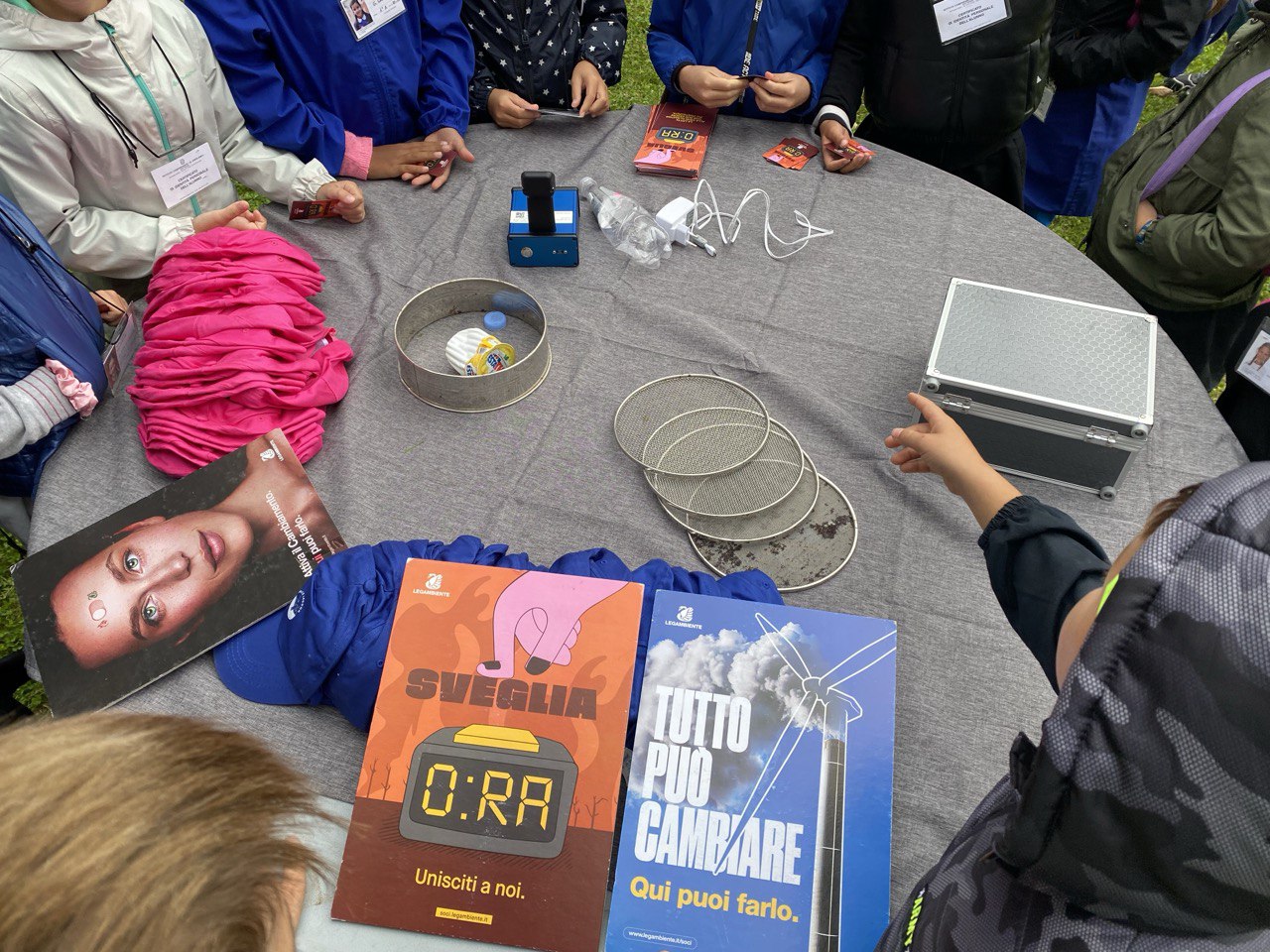To celebrate World “No Plastic Bags” Day (September 12), VLPF organized an educational event on marine pollution specifically aimed at primary school students. The event was made possible thanks to the collaboration with Serra dei Giardini Nonosoloverde social cooperative, which provided the garden where the event was held. In this enchanting setting, dating back to 1894, VLPF, supported by the expertise of Alessia Battaglia from Serra dei Giardini and her team, organized a child-friendly thematic itinerary. The event was structured into different topics and animated by colleagues and partners from Legambiente Circolo di Venezia and Venice Tap Water, both part of the Community of Practice against Plastic Pollution from the HEUROPE SeaClear 2.0 project.
Five classes from Venetian schools (Third Grade, Giacinto Gallina Primary School – Fifth Grade, Gallina School – Fourth Grade, Monsignor Cerutti Primary School in Murano – 2nd Grade C and 2nd Grade D, Tiziano Vecellio Primary School) had the opportunity to learn more about the vast problem of plastic in our seas, including in the Venice Lagoon.
Listening to representatives from Legambiente, Venice Tap Water, and Venice Lagoon Plastic Free, who explained how plastic reaches the sea, how individual actions can make a difference, and the damage plastic causes to ecosystems, the children deepened their understanding. They interacted with the speakers by sharing personal experiences, such as finding plastic fragments inside fish bought at local markets or witnessing the overflowing garbage bins in the city and the waste that, for various reasons, ends up in the Venetian canals, increasing plastic pollution in the sea. They also learned that every day the equivalent of 730 tons of plastic waste is dumped into the Mediterranean. The children experienced virtual reality simulations that showed layers of plastic floating in the ocean depths (H2020 InNoPlastic Project) and saw a portable Near Infrared Reflectance Spectroscopy (NIR) device in action, used to identify different types of plastic polymers (HEUROPE Remedies Project). They also discovered how abandoned boats can be treated and their materials recycled (Ghost Boats program and H2020 MAELSTROM Project), reducing their environmental impact.
The event concluded with a “Plastic Hunt” game: a treasure hunt for plastic waste hidden cleverly around the corners and among the plants of Serra dei Giardini.
Knowledge and education enable us to approach today’s significant issues with greater awareness and consciousness. Speaking to children and providing them with tools to understand and explore these topics lays the foundation for a more informed and hopefully more sustainable future.
